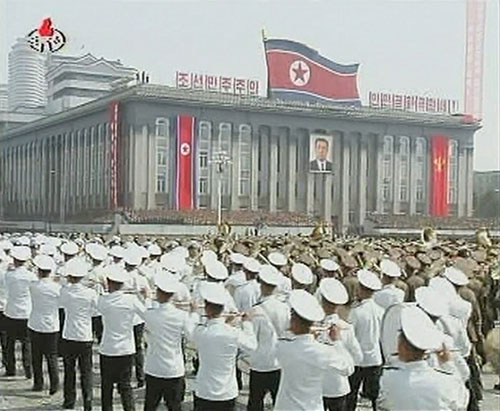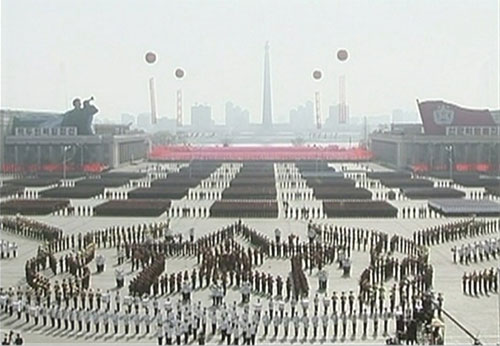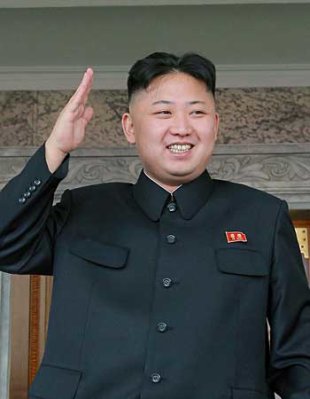
A DPRK military band takes part in a mass parade to celebrate founder Kim Il-sung's 100th birthday in Pyongyang in this still image taken from video April 15, 2012. [Photo/Agencies]

DPRK soldiers take part in a mass parade to celebrate founder Kim Il-sung's 100th birthday in Pyongyang in this still image taken from video April 15, 2012. [Photo/Agencies]















